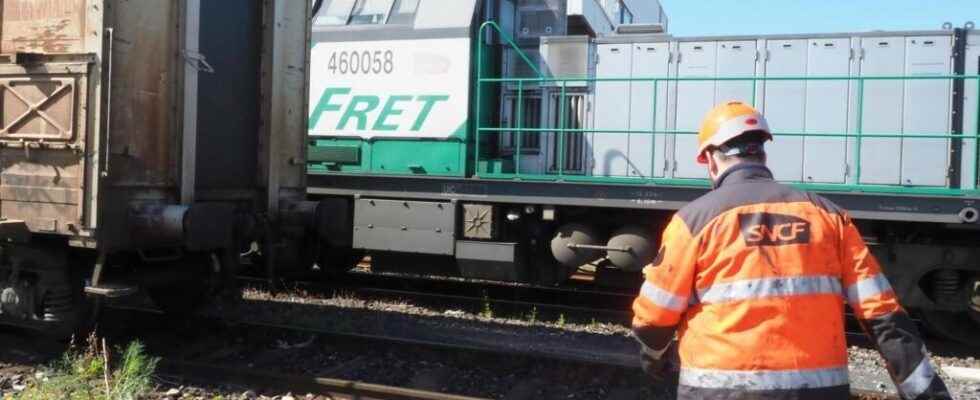Big anger from the leaders of the 4F Alliance. This group brings together the main French rail freight manufacturers. Last week, their meeting with the Minister of Transport was canceled. They were to talk about the revival of freight transport by rail. However, since then, and despite the calls, the ministry no longer responds. Interview with Raphaël Doutrebente, spokesperson for Alliance 4F.
RFI: The 4F Alliance that you represent is angry. Of the indifference felt following this missed meeting in January at the Ministry of Transport ?
Raphael Doutrebente : There is reason to be unhappy. We do not dispute the fact of rescheduling an appointment. It has been silent since, and despite our calls to give us another date for an interview with our Minister of Transport.
The government does not take the measure of the importance of freight, the transport of goods ?
Exactly. We are the poor relations of transport. After wanting a freight recovery plan before the Covid crisis, France no longer seems to be making it a priority.
However, for the past two years, goods during Covid-19 have been transported by train.
Perfectly. Without trains to transport cereals, fuel, raw materials for the construction of buildings or medicines, how would the French economy have functioned? I repeat, the threat is a blocked French economy.
► To read also: Containers and dry bulk: return to pre-Covid freight rates
You ask for an envelope to renovate the tracks. Works are the only claims ?
Today, one billion a year is missing to modernize the SNCF Réseau network, the French network.
SNCF Réseau is the sector of the SNCF (National Railway Company, editor’s note) dedicated to the transport of goods ?
Yes it’s part of the 4F Alliance, this group that I represent freight operators in France. However, the railways of SNCF Réseau are rails that crisscross France and are neglected. It’s urgent. The situation is getting worse every year.
What are the real-time effects during transport for you, transport operators?
Just an example: it means that to go from point A to point B, we are told that you can go at 120 kilometers per hour and that in reality, you only drive at 50 kilometers per hour. As a result, the goods do not arrive on time.
At this rate, France could lose markets in the carrier sector ?
Obviously, and that’s what hangs in our face. In Germany, Switzerland, Italy, you have credits allocated to track renovations which go up to four times more than in France.
At the end of January 2023, President Macron nevertheless displayed his ambitions to reduce pollution by 2030. He would not have been aware of this carelessness around train transport ?
During his speech, there was not a word about rail transportation. There is a real danger in forgetting rail transport. On the trains, we put trucks. We are not in competition with the road. We work together. Trucks go where trains cannot. And let’s not forget that a freight train means 40 less trucks on the road.
Rail transport even has less polluting fuel ?
Yes. We already have alternative fuels. 23% of our traffic that used to run on diesel now runs on biofuel made from French rapeseed.
At the economic level, what are the risks ?
First of all, I would like to say that unmaintained tracks are also a risk of accident, and therefore of economic loss. On the other hand, by renovating and building a good network of railways to link the factories to the distribution centers, France gains on all fronts. Because behind what is there? There are jobs and industries that are doing well.
You sense a desire among French manufacturers to invest in rail transport ?
Every day, manufacturers who work with us tell me of their desire to connect their factories to the rail network. It is above all necessary to invest and plan the work on the infrastructures.
